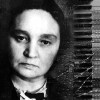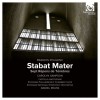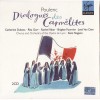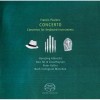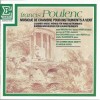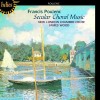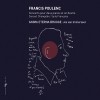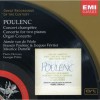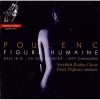Biography
Poulenc was born in Paris in 1899 in the family, where the music was part of their life. Since his childhood he was taught by his mother, an amateur pianist, to play the piano. He was a skilful pianist and so in his early compositions we can hear the keyboard tones. His compositions, throughout his career, were the unity of his own works as well as those of Wolfgang Amadeus Mozart and Camille Saint-Saëns. Later he lost some his close friends; it was connected with a pilgrimage to the Black Madonna of Rocamadour. The result of this loss appeared in several compositions, which were written in a gloomy, severe tone.
Poulenc was one of the composers of Les Six, a group of young French and Swiss musicians: Milhaud, Auric, Durey, Honegger and Tailleferre, who also had links with Erik Satie, Jean Hugo and Jean Cocteau. He was influenced by Dada movement's techniques, and created several unusual melodies, which were new for Parisian society.
He had already been a member of this group before he made his first formal musical training, with Charles Koechlin in 1921.
Poulenc was an author of several recordings, including some of his own songs (with Pierre Bernac, recorded in 1947; and Rose Dercourt) and the concerto for two pianos (recorded in May 1957). In 1961 attended a world premiere recording of his Gloria, which was conducted by Georges Prêtre. His recordings were released by RCA Victor and EMI. His composition Perpetual Motion Nr. 1 (1918) is used in Alfred Hitchcock's Rope (1948).
Poulenc was fond of woodwinds, so he created a series of works for wind instruments and piano. He planned to write a set of sonatas for all of them, but complete only four of them: sonatas for flute, oboe, clarinet, and the Elégie for horn.
Poulenc died of heart failure in Paris in 1963 and is buried at the cemetery of Pere-Lachaise in Paris.
Some facts pointed that he was one of the first openly gay composers. First serious relationship he had with painter Richard Chanlaire, for whom he created his Concert champêtre: "You have changed my life, you are the sunshine of my thirty years, a reason for living and working." He also once said, "You know that I am as sincere in my faith, without any messianic screamings, as I am in my Parisian sexuality." During all his life there was an inner struggle between religion and nonconventional orientation.
Poulenc also had several relationships with women. The result of one of his affairs was a daughter, Marie-Ange, but he never formally admitted that he was indeed her father. He dedicated two songs to her mother "Freddy". He was also a very close friend of the singer Pierre Bernac, only a friend, due to their correspondence, for whom he wrote many songs.
Poulenc was always affected by the death of his friends. First was the death of his friend, Raymonde Linossier. After death of his young, twenty-year-old friend, the novelist Raymond Radiguet in 1923, he had a two days depression and was "unable to do anything". However, two weeks later he came to consciousness, and began his rehearsals with Sergei Diaghilev, which hewas unable to leave. In 1936 was the next hard blow, it was the death of another composer, Pierre-Octave Ferroud in an automobile accident in Hungary. It was the reason for the first visit to the shrine of the Black Virgin of Rocamadour. After visiting this sacred place, his compositions became more religious and spiritual, beginning with the Litanies à la vierge noire (1936), the Mass in G (1937), Gloria (1959), and Sept répons des ténèbres (1961–2). In 1949 died his friend, artist Christian Bérard, for whom he composed his Stabat Mater (1950).





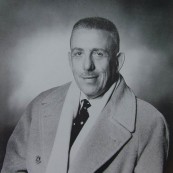






















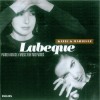




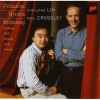







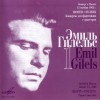

![The Heifetz Collection, Volume 3 [2 CD]](http://static.classicalm.com/repository/disk-cover/small/719-img1315174118757085.jpg)




